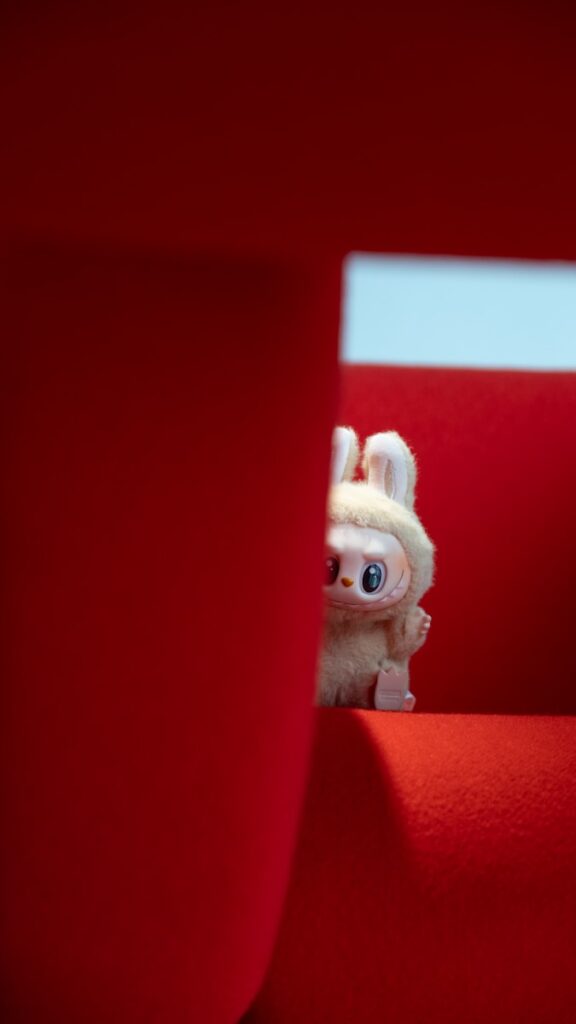Labubus, with their naughty smiles, have stolen their way into most homes with kids, but their colorful furs hold a sinister secret. They are the newest presentation of a Chinese soft power takeover. With the US clogging up its channels of influence, we had better prepare for a wave of Chinafication.
Soft power is marked by the promotion of positive values. The aid of a foreign nation in its fight against viruses, the support of independent media and civic society in difficult regions of faraway places, or just standing next to an ally in solidarity in times of crisis. The US was a master in projecting soft power as the leader of the liberal world order. Not only through diplomatic gestures, but through the popularity of privately owned companies, such as McDonald’s, Apple, Google, or the often scandal-prone but unavoidable energy giants, like Exxon or Chevron.
Now, as the US under Trump is turning to short-termism through hard power measures, such as the threat of violence or tariffs, the world order is quickly reshuffling. China is all too eager to seize on this opportunity. While soft power creates lasting effects, hard power might be more effective in reaching aims quickly, but these will not necessarily be long-lasting. Experienced nations use a mixture called smart power, but only use the threat of force as a last measure, not as the first choice, as in the case of Donald Trump.
China has been growing quickly, and while it has been dismissed as the factory floor of our world for a long time, products of Chinese companies have crept into our everyday lives. From computers, drones, phones, and other consumer electronics, to toys.
Chinese products are essentially all goods aimed at achieving a green transformation; thus, a Western trend for a greener future perversely fuels the less-than-green Chinese economy.
China’s tech sector is still the leading contributor to the country’s soft power, but younger generations are increasingly citing China’s entertainment industry as a positive influence.
This is no coincidence, as the Chinese are targeting youth to boost a positive image of the country. China is a huge market, so even Hollywood is catering to its strict censors. Now, as Pop Mart’s market capitalization is larger than Hasbro’s and Mattel’s combined, China’s standing among youth is bound to increase.
The problem is not with China in general, but that Chinese communism is at stark odds with Western liberal values. The US and the EU should be competing for hearts and minds, but only China is putting in effort, a lot at that, to project soft power. The US is giving up, while the EU (rather than separate member states) has never even tried.
It should not be difficult, though. The US still has the largest companies and most valuable brands, so no taxpayers’ money needs to be wasted in increasing the brand of the USA and consequently its soft power. The abrupt aid the US has been providing to other countries was also ill-considered. Not because the money has been used wisely, but because by suddenly stopping the aid, the past recipients are bound to turn to alternative sources, handing China a low-hanging fruit.
This power vacuum would also be a great opportunity for the EU. So far, the block is lagging in both soft and hard power. This doesn’t need to be so. Even Labubus are modelled upon elves that are deeply imbued in European culture. The EU needs to capitalize on its strengths and utilize them to boost soft power and increase its hard power sources. It needs to invest more in branding opportunities, boost its culture, increase the global influence of its companies, and reroute funds from welfare to military spending. The EU should stop its misguided crusade against companies, should be proud of its culture instead of being apologetic for the privilege, and should take a more active role in general in the world’s affairs. Otherwise, we should embrace our new Labubu overlords.
Continue exploring:
To Choose, or Not To Choose, That Is The Question
Parliamentary Election in the Czech Republic with Martin Ehl [PODCAST]



